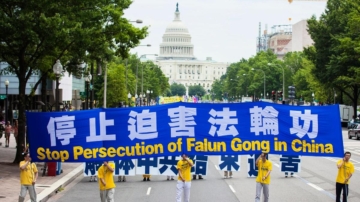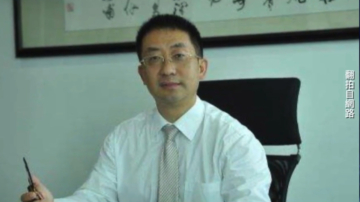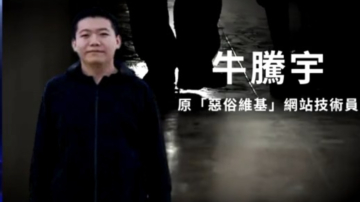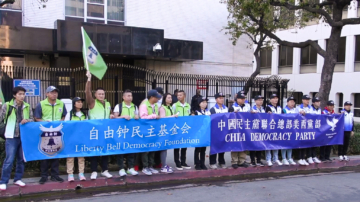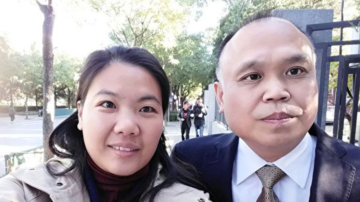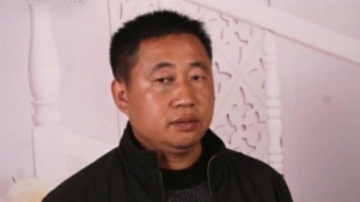【新唐人2013年05月11日訊】近來,中國網路熱傳美國「白宮有個奧青天」。清華大學學生朱令19年前的鉈中毒案,引發大陸民眾越洋告洋狀熱潮,甚至請求「歐巴馬出兵解放中國人民」。這一現象引起世界各國媒體記者的關注。有人說這是大陸訪民們在萬般無奈和絕望中的黑色幽默,但也有人認為這不是絕望而是覺醒,是中國訪民們的新出路。那麼,美國政府到底會如何做呢?
按照美國相關規定,一個請願書只要在30天內,簽名人數達到10萬人,白宮就要進行回覆。但朱令案僅用了三天時間,就輕鬆突破10萬人的底線。
這種告洋狀的舉動和請願的人數之多,讓世界媒體記者目瞪口呆,稱之為「曠古奇聞奇景」。
據《美國之音》報導,5月6號,法蘭西24電視臺網站,報導了這件比天方夜譚還天方夜譚的奇異新聞。5月8號,《美國有線電視》新聞網駐中國記者蔣欣,也從北京發出長篇報導,講述了朱令案的來龍去脈,和過去一個星期更為離奇的發展。
新疆網友張先生:「很多訪民上訪時間也不短了,都認識到現在中國社會並不是一個法治國家。現在訪民把外媒和白宮作為他們的希望,說明中國訪民意識到只有真正的民主、法治社會,才是人民真正的青天,訪民的事情、冤情才能通過正常的渠道得到解決。」
中國網民在白宮網站上告洋狀,甚至引起了中共中央機關報《人民日報》和《新華社》的關注,分別發文聲稱要挽回正義、要澄清傳聞。不過被網友們回應:有點遲了。
由於中國司法沒有獨立,不少訪民即使跑到北京上訪,也難逃被非法截訪、關押、虐待等下場。因官官相護,訪民普遍被打擊報復。告洋狀成為訪民最後的做法。
時事評論員藍述:「在過去的二、三十年裡面,訪民上訪方式的變化是非常能說明問題的。從最早的越級上訪,最後上訪到中央信訪辦、到高檢和高院這麼一個模式,到最後不得不改為到外國駐北京的領館區去上訪、去發傳單。後來又發展到香港去上訪,又發展到聯合國去上訪,最後終於發展到白宮的網站上『上訪』。」
還有一些訪民走投無路時,經常想盡辦法把伸冤告狀的材料交給國外媒體,請求外國記者能夠關心報導他們的冤情。《新唐人電視》在過去幾年間曾收到這類的大量投書或來函。
如今,白宮網站因出現大量中國網民的請願而紅火,這是否成為訪民們的新出路呢?
藍述:「這條路看的很清楚,訪民越來越走向通過社會輿論來維權的一種維權方式。它說明中國訪民對中共官員徹底絕望,對中共司法制度徹底絕望,對中共體制徹底絕望,對中共體制控制之下的所有媒體徹底絕望。這是中國的訪民在走了幾十年的上訪之路後,最後得出來了『四個絕望』。這『四個絕望』就導致了他們到白宮的網站上去上訪。」
對於中國網民史無前例,跨國尋求司法正義的要求,美國政府會做出怎樣的回應﹖目前依然是一個世界之謎。但中國公眾和網民這次的舉動,被認為是創造了歷史。
藍述:「這次朱令案不會是最後一次,很可能會成為一個開端。以後很可能會有越來越多的中國訪民,把自己的案件羅列到白宮的網站上去。我想這是很有意思的現象。」
中國公民的冤情,在自己的國家無法得到正常申訴,新疆的網友張先生認為,這是中共獨裁統治下,整個國家的悲哀。但是,他說,現在已經有很多訪民意識到這一點,所以這次中國網民在白宮網站上「告洋狀」,與其說是絕望,不如說是中國訪民的覺醒。
採訪/朱智善 編輯/王子琦 後製/孫寧
A New Path to Justice for Chinese Petitioners
Recently, news has spread widely on over China's
internet about “Judge Obama in the White House.”
Netizens in Mainland China have
brought Zhu Ling's case abroad.
Zhu Ling, a Tsinghua University student,
was poisoned by thallium, 19 years ago.
Netizens even requested that Obama
send troops to liberate people in China.
This scenario has concerned reporters worldwide.
Some say it is the black humor of
Chinese petitioners driven to despair.
Others believe that this is not despair but awakening,
revealing a new path for Chinese petitioners.
In accordance with relevant provisions of the United States,
as long as a petition can gather 100,000 signatures
within 30 days, the White House needs to respond.
A petition for Zhu Ling's case gathered
over 100,000 signatures in three days.
This move to go abroad, as well as the number
of petitioners, has stunned reporters worldwide. This is unprecedented.
According to Voice of America reports on May 6,
"France 24 television” website reported this rare news.
On May 8, Jiang Xin, the U.S. Cable News reporter
in China, also sent a lengthy story from Beijing.
It gave details of Zhu Ling's case, as well as
bizarre developments over the past week.
Netizen, Mr. Zhang from Xinjiang: "Many
of them have petitioned for quite a while.
They recognize that China is not ruled by law.
Petitioners have taken foreign media
and the White House as their hope.
This clearly indicates that only true democracy and
a rule-of-law society will be the people's real hope.
Then, petitioners' grievances can
be resolved through a proper channel.”
When the Chinese petition appeared
on the White House website,
it attracted the attention of China's official newspapers,
People's Daily and Xinhua News Agency.
These newspapers also published articles,
claiming “restoring justice”, and “clarifying rumors.”
Yet, netizens responded: 『Sorry, it is a little too late'.
As China's judicial branch lacks independence,
many petitioners went to Beijing to appeal.
Unfortunately, they have been
detained, arrested and abused.
Because officials protect themselves,
petitioners are generally being retaliated against.
Taking the case to the court overseas
has become petitioners' last resort.
Lan Shu, political commentator:
“Over the last three decades,
people in China have changed their methods
to petition, which tells us what has really happened.
It evolved from the earliest leapfrog petitions.
These traveled from the central office, the High
Court and the Supreme People's Procuratorate
to passing flyers in foreign consular districts.
This moved to petitioning in Hong Kong, the
United Nations, and finally to the White House.”
Some petitioners were so desperate that they
passed their complaint materials to foreign media.
They wanted foreign reporters to report their grievances.
A large number of such letters
were delivered to NTD Television.
Today, the White House website has received
numerous petitions from Chinese netizens.
Will this be the Chinese petitioners' new path?
Lan Shu: “This clearly shows that petitioners are more
likely to choose public opinion to protect their rights.
It also indicates their total despair towards Chinese
officials, the judicial system, the Communist system,
and media under the control of the Communist system.
After decades of petitioning, Chinese people
have finally reached complete despair.
This depair has led them marching on
the path to the White House website.”
Chinese petitioners' quest for justice abroad
is unprecedented. How will the US react to this?
At the moment, it is still a mystery to the world.
However, Chinese netizens have now made history.
Lan Shu: “Zhu Ling's case will only be the beginning.
In the future, there may be more Chinese petitioners
revealing their experiences on the White House website.
I think this is a rather interesting phenomenon.”
Netizen Zhang, from Xinjiang, believes it is the sorrow of
one's own country if citizen's grievances cannot be aired.
However, many petitioners have realized this.
Chinese petitioners airing requests on the White House
website is not an indication of their desperation.
It is an indication of their awakening.
按照美國相關規定,一個請願書只要在30天內,簽名人數達到10萬人,白宮就要進行回覆。但朱令案僅用了三天時間,就輕鬆突破10萬人的底線。
這種告洋狀的舉動和請願的人數之多,讓世界媒體記者目瞪口呆,稱之為「曠古奇聞奇景」。
據《美國之音》報導,5月6號,法蘭西24電視臺網站,報導了這件比天方夜譚還天方夜譚的奇異新聞。5月8號,《美國有線電視》新聞網駐中國記者蔣欣,也從北京發出長篇報導,講述了朱令案的來龍去脈,和過去一個星期更為離奇的發展。
新疆網友張先生:「很多訪民上訪時間也不短了,都認識到現在中國社會並不是一個法治國家。現在訪民把外媒和白宮作為他們的希望,說明中國訪民意識到只有真正的民主、法治社會,才是人民真正的青天,訪民的事情、冤情才能通過正常的渠道得到解決。」
中國網民在白宮網站上告洋狀,甚至引起了中共中央機關報《人民日報》和《新華社》的關注,分別發文聲稱要挽回正義、要澄清傳聞。不過被網友們回應:有點遲了。
由於中國司法沒有獨立,不少訪民即使跑到北京上訪,也難逃被非法截訪、關押、虐待等下場。因官官相護,訪民普遍被打擊報復。告洋狀成為訪民最後的做法。
時事評論員藍述:「在過去的二、三十年裡面,訪民上訪方式的變化是非常能說明問題的。從最早的越級上訪,最後上訪到中央信訪辦、到高檢和高院這麼一個模式,到最後不得不改為到外國駐北京的領館區去上訪、去發傳單。後來又發展到香港去上訪,又發展到聯合國去上訪,最後終於發展到白宮的網站上『上訪』。」
還有一些訪民走投無路時,經常想盡辦法把伸冤告狀的材料交給國外媒體,請求外國記者能夠關心報導他們的冤情。《新唐人電視》在過去幾年間曾收到這類的大量投書或來函。
如今,白宮網站因出現大量中國網民的請願而紅火,這是否成為訪民們的新出路呢?
藍述:「這條路看的很清楚,訪民越來越走向通過社會輿論來維權的一種維權方式。它說明中國訪民對中共官員徹底絕望,對中共司法制度徹底絕望,對中共體制徹底絕望,對中共體制控制之下的所有媒體徹底絕望。這是中國的訪民在走了幾十年的上訪之路後,最後得出來了『四個絕望』。這『四個絕望』就導致了他們到白宮的網站上去上訪。」
對於中國網民史無前例,跨國尋求司法正義的要求,美國政府會做出怎樣的回應﹖目前依然是一個世界之謎。但中國公眾和網民這次的舉動,被認為是創造了歷史。
藍述:「這次朱令案不會是最後一次,很可能會成為一個開端。以後很可能會有越來越多的中國訪民,把自己的案件羅列到白宮的網站上去。我想這是很有意思的現象。」
中國公民的冤情,在自己的國家無法得到正常申訴,新疆的網友張先生認為,這是中共獨裁統治下,整個國家的悲哀。但是,他說,現在已經有很多訪民意識到這一點,所以這次中國網民在白宮網站上「告洋狀」,與其說是絕望,不如說是中國訪民的覺醒。
採訪/朱智善 編輯/王子琦 後製/孫寧
A New Path to Justice for Chinese Petitioners
Recently, news has spread widely on over China's
internet about “Judge Obama in the White House.”
Netizens in Mainland China have
brought Zhu Ling's case abroad.
Zhu Ling, a Tsinghua University student,
was poisoned by thallium, 19 years ago.
Netizens even requested that Obama
send troops to liberate people in China.
This scenario has concerned reporters worldwide.
Some say it is the black humor of
Chinese petitioners driven to despair.
Others believe that this is not despair but awakening,
revealing a new path for Chinese petitioners.
In accordance with relevant provisions of the United States,
as long as a petition can gather 100,000 signatures
within 30 days, the White House needs to respond.
A petition for Zhu Ling's case gathered
over 100,000 signatures in three days.
This move to go abroad, as well as the number
of petitioners, has stunned reporters worldwide. This is unprecedented.
According to Voice of America reports on May 6,
"France 24 television” website reported this rare news.
On May 8, Jiang Xin, the U.S. Cable News reporter
in China, also sent a lengthy story from Beijing.
It gave details of Zhu Ling's case, as well as
bizarre developments over the past week.
Netizen, Mr. Zhang from Xinjiang: "Many
of them have petitioned for quite a while.
They recognize that China is not ruled by law.
Petitioners have taken foreign media
and the White House as their hope.
This clearly indicates that only true democracy and
a rule-of-law society will be the people's real hope.
Then, petitioners' grievances can
be resolved through a proper channel.”
When the Chinese petition appeared
on the White House website,
it attracted the attention of China's official newspapers,
People's Daily and Xinhua News Agency.
These newspapers also published articles,
claiming “restoring justice”, and “clarifying rumors.”
Yet, netizens responded: 『Sorry, it is a little too late'.
As China's judicial branch lacks independence,
many petitioners went to Beijing to appeal.
Unfortunately, they have been
detained, arrested and abused.
Because officials protect themselves,
petitioners are generally being retaliated against.
Taking the case to the court overseas
has become petitioners' last resort.
Lan Shu, political commentator:
“Over the last three decades,
people in China have changed their methods
to petition, which tells us what has really happened.
It evolved from the earliest leapfrog petitions.
These traveled from the central office, the High
Court and the Supreme People's Procuratorate
to passing flyers in foreign consular districts.
This moved to petitioning in Hong Kong, the
United Nations, and finally to the White House.”
Some petitioners were so desperate that they
passed their complaint materials to foreign media.
They wanted foreign reporters to report their grievances.
A large number of such letters
were delivered to NTD Television.
Today, the White House website has received
numerous petitions from Chinese netizens.
Will this be the Chinese petitioners' new path?
Lan Shu: “This clearly shows that petitioners are more
likely to choose public opinion to protect their rights.
It also indicates their total despair towards Chinese
officials, the judicial system, the Communist system,
and media under the control of the Communist system.
After decades of petitioning, Chinese people
have finally reached complete despair.
This depair has led them marching on
the path to the White House website.”
Chinese petitioners' quest for justice abroad
is unprecedented. How will the US react to this?
At the moment, it is still a mystery to the world.
However, Chinese netizens have now made history.
Lan Shu: “Zhu Ling's case will only be the beginning.
In the future, there may be more Chinese petitioners
revealing their experiences on the White House website.
I think this is a rather interesting phenomenon.”
Netizen Zhang, from Xinjiang, believes it is the sorrow of
one's own country if citizen's grievances cannot be aired.
However, many petitioners have realized this.
Chinese petitioners airing requests on the White House
website is not an indication of their desperation.
It is an indication of their awakening.

